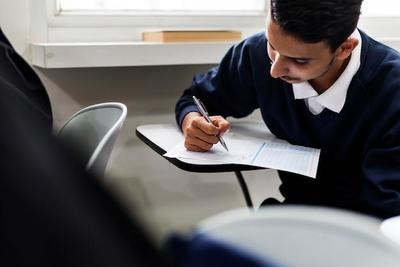Assessment is a crucial component of education, as it helps measure students' progress and understanding. However, the reliance on standardized testing as the primary means of assessment has sparked a growing debate. Many experts argue that standardized testing is limiting, unfair, and does not accurately reflect students' abilities. As a result, there is a pressing need to rethink assessment strategies and explore alternative approaches.
Standardized testing involves using uniform tests administered to all students, typically in multiple-choice format. While these tests provide a standardized way to compare students' performance, they have several limitations. One major concern is that they focus predominantly on rote memorization and regurgitation of information. This approach fails to assess critical thinking skills, problem-solving abilities, creativity, and collaboration – essential skills for success in the modern world.

The Unfairness of Standardized Testing
Standardized tests often fail to account for the diverse backgrounds and experiences of students. They tend to be biased towards certain cultural and socioeconomic groups, putting students from disadvantaged communities at a disadvantage. This unfairness undermines the true purpose of education, which is to provide equal opportunities for all students to succeed. Additionally, the pressure associated with high-stakes standardized testing can lead to increased stress and anxiety among students, further impacting their performance.
Alternative Approaches to Assessment
To move beyond standardized testing, educators and policymakers are exploring alternative approaches that provide a more comprehensive and accurate assessment of students' abilities. One such approach is performance-based assessment, which involves evaluating students' knowledge and skills through real-world scenarios, projects, and presentations. This method allows students to demonstrate their understanding in a practical context, encouraging critical thinking and problem-solving.
Portfolio Assessment
Another effective alternative is portfolio assessment. This method involves students compiling a collection of their work over a period of time to showcase their learning progress. Portfolios can include various forms of student work, such as essays, projects, artwork, and presentations. By assessing the portfolio holistically, educators gain a deeper understanding of students' abilities, growth, and areas for improvement.
Peer and Self-Assessment
In addition to teacher-led assessments, peer and self-assessment can be valuable tools in the assessment toolbox. Peer assessment involves students evaluating and providing feedback on their peers' work. This not only encourages active engagement in the learning process but also promotes a sense of responsibility and collaboration among students. Self-assessment involves students reflecting on their own performance, identifying their strengths and weaknesses, and setting goals for improvement. These self-reflections help students develop metacognitive skills and take ownership of their learning.
Authentic and Real-World Assessments
To better prepare students for the challenges of the real world, assessments should mirror real-world situations and tasks. Authentic assessments involve students applying their knowledge and skills to solve practical problems or complete meaningful projects. This approach not only assesses their understanding but also equips them with the skills needed to succeed beyond the classroom. Examples of authentic assessments include simulations, case studies, and internships.
Technology-Enabled Assessments
Advancements in technology have also opened new opportunities for assessment. Technology-enabled assessments can provide instant feedback, adapt to individual learner needs, and allow for more engaging and interactive assessment experiences. Online quizzes, interactive simulations, and virtual reality assessments are some examples of how technology can enhance the assessment process.
Balancing Standardized and Alternative Assessments
While moving beyond standardized testing is crucial, it is important to strike a balance between standardized and alternative assessments. Standardized tests can still provide valuable insights when used appropriately, such as to measure system-wide performance or identify achievement gaps. However, they should not be the sole basis for evaluating individual students' abilities. Embracing a variety of assessment methods, including performance-based assessments, portfolios, peer and self-assessments, authentic assessments, and technology-enabled assessments, allows for a more holistic and accurate understanding of students' capabilities.
Conclusion
Rethinking assessment is essential for creating a more inclusive and effective education system. Moving beyond standardized testing and exploring alternative approaches such as performance-based assessments, portfolio assessments, peer and self-assessment, authentic assessments, and technology-enabled assessments opens up new possibilities for evaluating students' abilities. By embracing these strategies, we can provide a more comprehensive assessment that fosters critical thinking, problem-solving, and collaboration – skills that are vital for success in the 21st century.